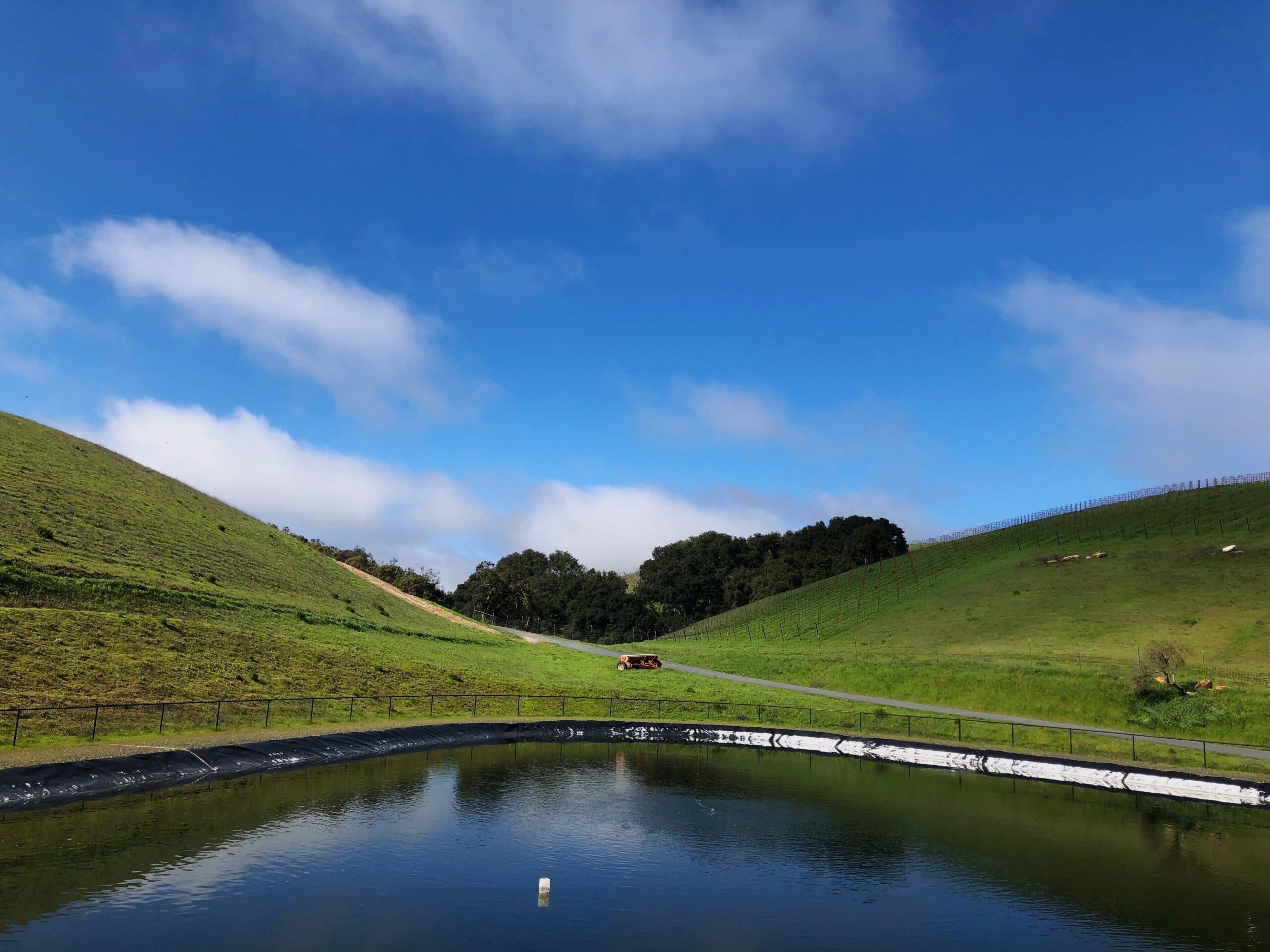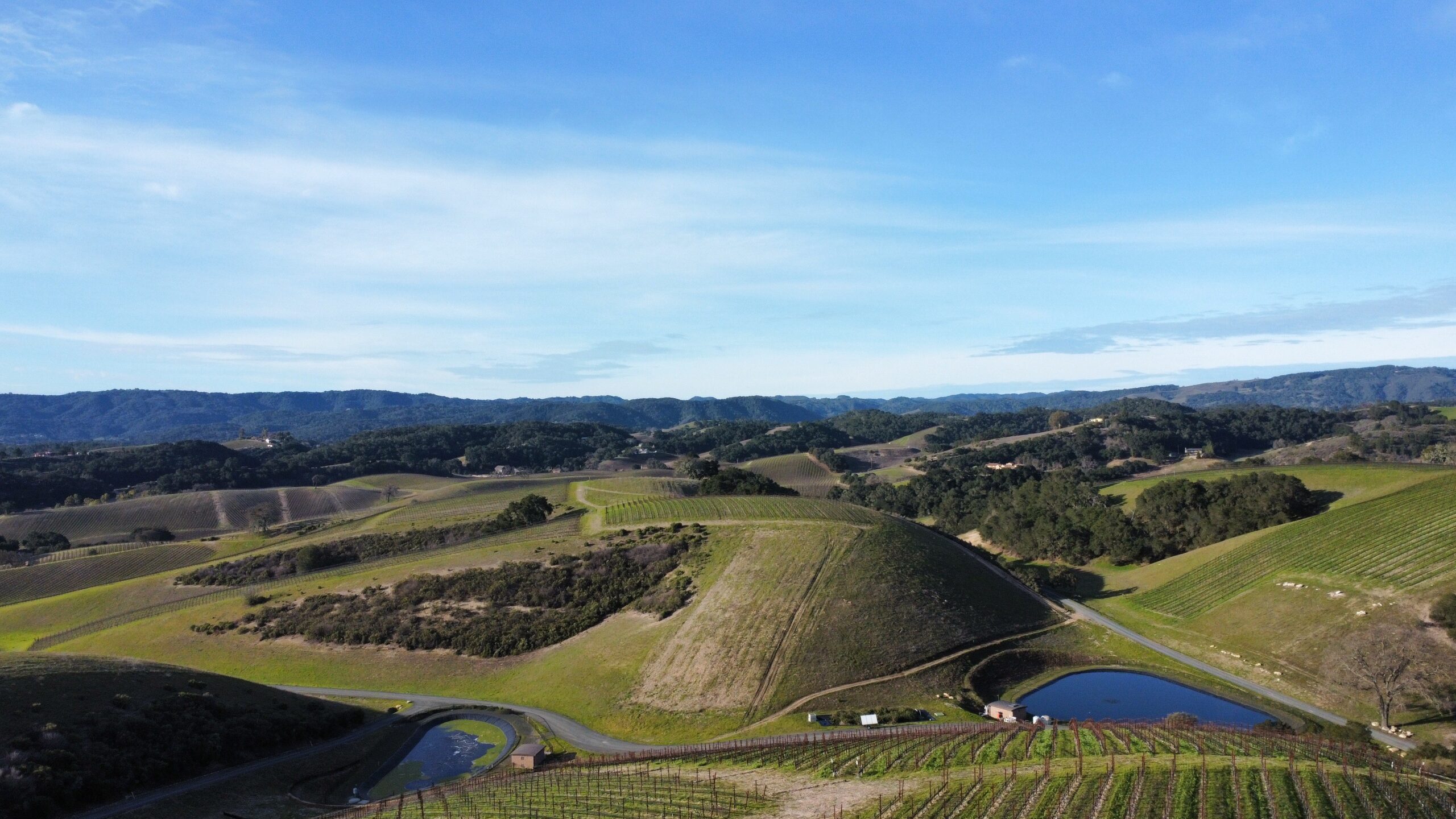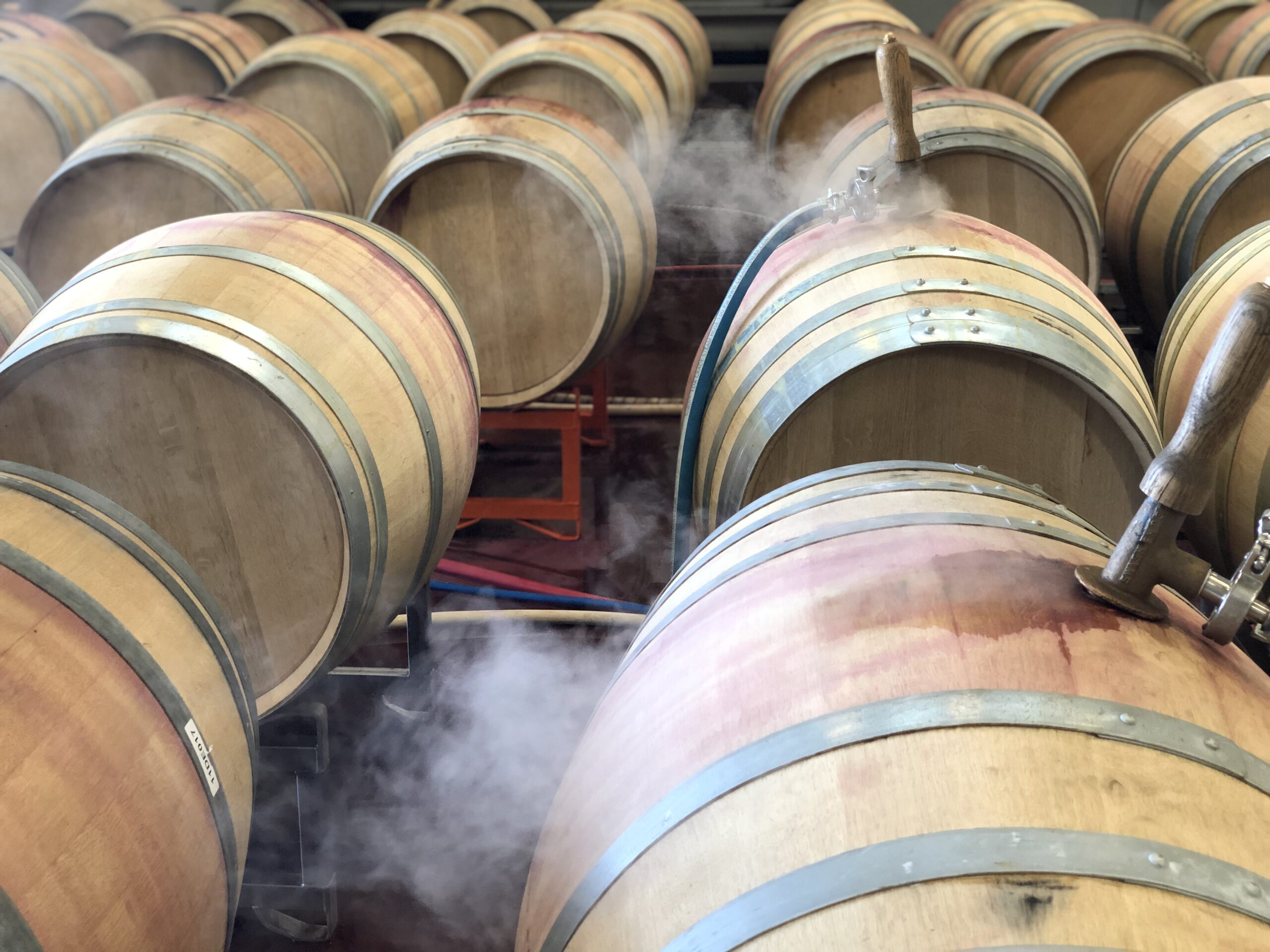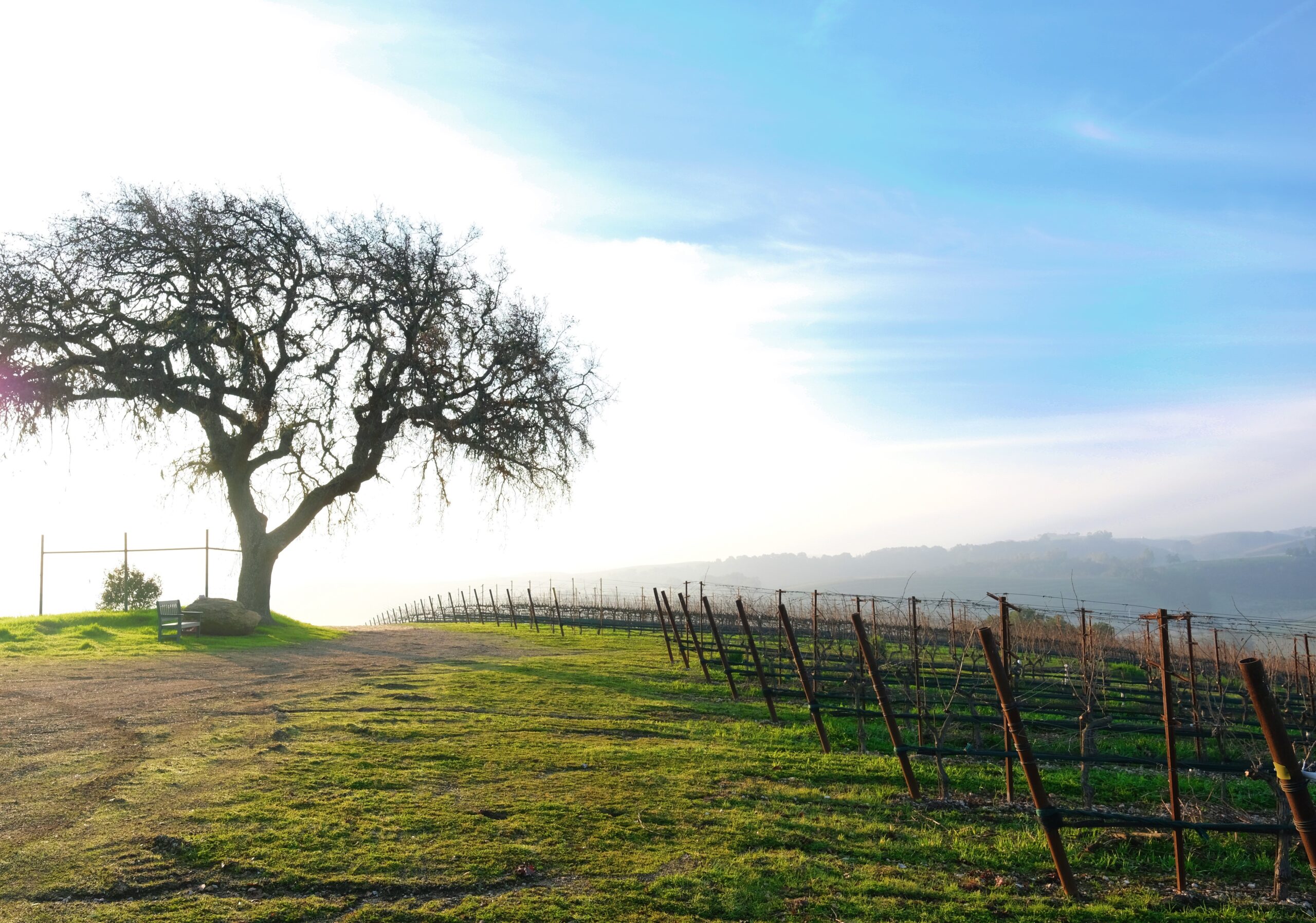Water is a precious resource in the Central Coast of California and figuring out how to both increase our supply and reduce our use is an ongoing challenge critical to our survival.
One Of Our Storage Ponds Used To Hold Collected Rainwater And Winery Wastewater To Use For Irrigation In The Vineyard
Increasing our Supply
Maybe an absurd notion (for those that don’t believe in cloudseeding) but we capture all the rainwater that falls on our winery and tasting room buildings and store it for use later in the season.
When it rains, we capture a material amount of water (roughly 80−90,00 gallons per inch of rain). This winter we had to turn our system off halfway through the January storm because our storage ponds were full!
Our system of ponds: our treatment pond on the left, biofilter in the middle, and one of two holding ponds on the right.
We also collect, clean and reuse the water used for cleaning tanks and floors in the winery (“gray water”). This water hangs out in a treatment pond before flowing into the“biofilter.” The biofilter is basically a big box filled with gravel. Wetland plants grow in it. The water flows through the gravel bed and the roots of the plants filter it before it goes into the storage pond.
Another less obvious practice to capture rainwater is erosion control. If the rain doesn’t move across the ground, it sinks into the soil where it is available to the vines when Spring arrives. We take erosion control seriously in both our approach to winterization (using hay and fencing) and our use of cover crop.
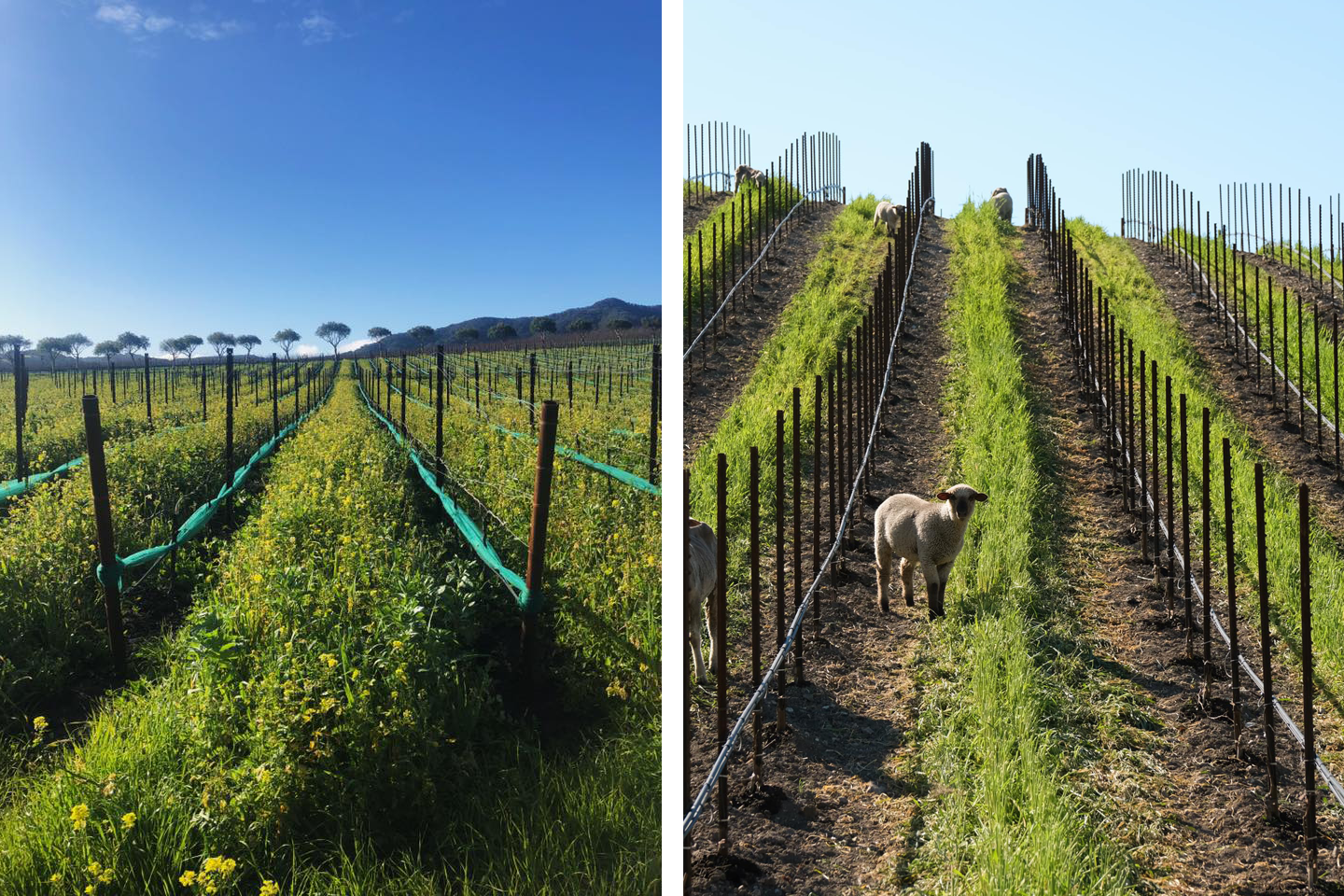
Planting Cover Crops Helps With Erosion Control And Water Retention. Pictured Left: Cover Crop Between Rows At Jespersen Ranch. Right: Sheep Graze On Cover Crops At Heart Hill Vineyard.
Reducing our Use
When it comes to reducing our use there are two critical activities: measurement and implementing conservation measures.
We have three systems for measuring water use in the vineyard and making sure irrigation is as efficient as possible.
· First, we have a network of sensors throughout the vineyard that track the flow of water from wells, to storage ponds, to the vines. We can see which pumps are operating when and how they are performing.
· Second, we have soil moisture monitors that can tell us if water is getting to where it needs to be in the soil profile.
· Third, we have sensors that sit above the vineyard that measure how much water the vines are losing (vine sweat) to the environment.
All three systems are used in conjunction to deficit irrigate and track our water use so we can continue to make improvements on a year-over-year basis.
Steaming Barrels In The Winery. The Steam Helps To Keep Them Clean And Hydrated
When it comes to conservation many times it’s the obvious and least sexy methods that create the most benefit. A few examples:
· We do not irrigate without having someone in the field to check for and address leaks as soon as the irrigation system is turned on.
· We use double-line irrigation systems so that we can target particular vines or smaller areas with irrigation without watering a larger area.
· In the winery we clean all our tanks by hand with extremely water efficient pressure washers. Pressure washers do a great job of removing gunk from surfaces but also use very little water. Need to clean a floor? Scrubbing it with a brush and cleaning up with a squeegee works great and conserves water.
· We clean our barrels with steam. Steam doesn’t use a lot of water and is an excellent way to knock out any bad microbes that may be hanging around. Steam is also a very efficient way of keeping barrels hydrated so they don’t leak.
While we currently incorporate a lot of interesting practices, we can always do better and are constantly on the lookout for ways to make improvements each year.


